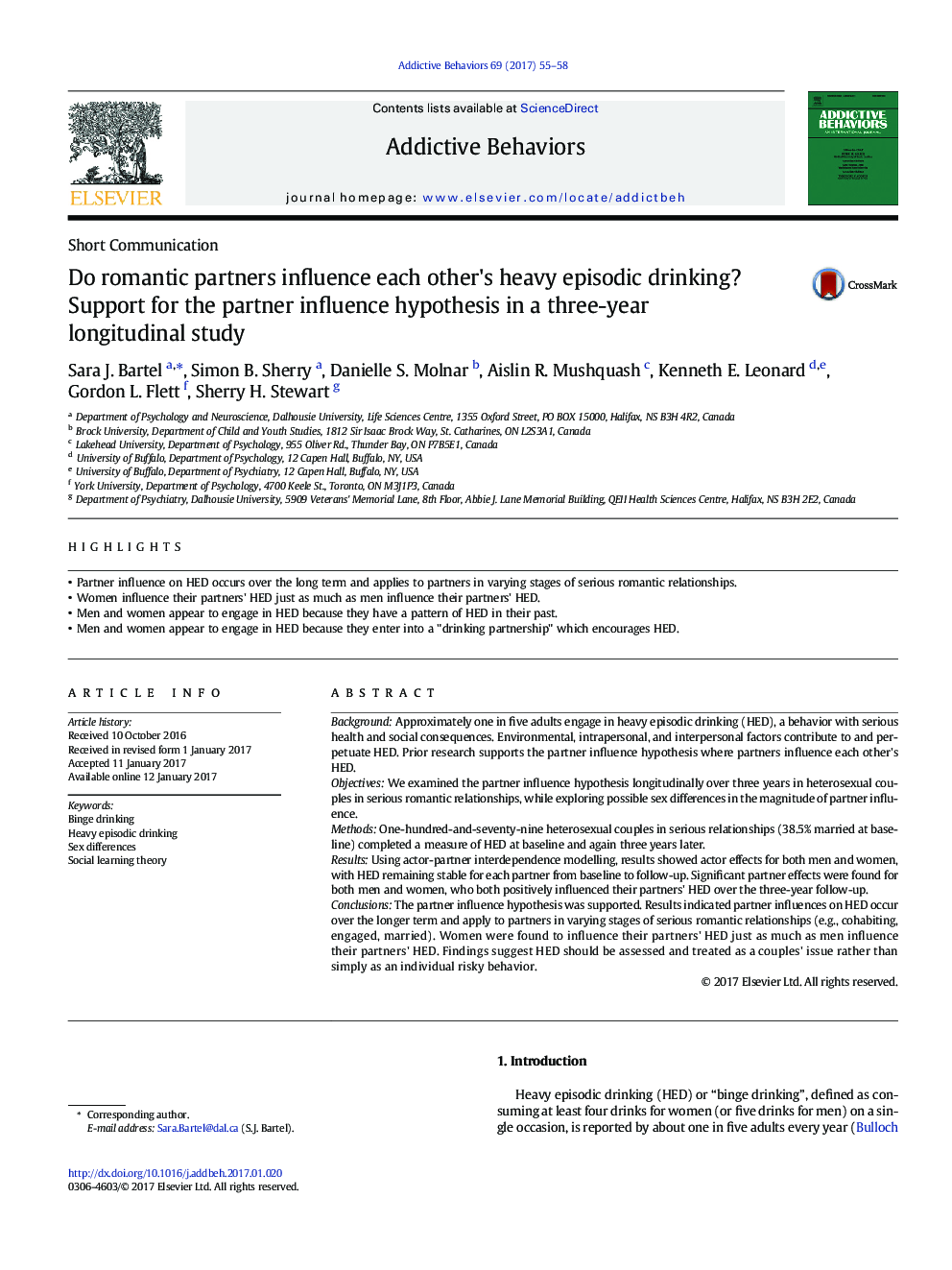| کد مقاله | کد نشریه | سال انتشار | مقاله انگلیسی | نسخه تمام متن |
|---|---|---|---|---|
| 5037732 | 1472502 | 2017 | 4 صفحه PDF | دانلود رایگان |
- Partner influence on HED occurs over the long term and applies to partners in varying stages of serious romantic relationships.
- Women influence their partners' HED just as much as men influence their partners' HED.
- Men and women appear to engage in HED because they have a pattern of HED in their past.
- Men and women appear to engage in HED because they enter into a "drinking partnership" which encourages HED.
BackgroundApproximately one in five adults engage in heavy episodic drinking (HED), a behavior with serious health and social consequences. Environmental, intrapersonal, and interpersonal factors contribute to and perpetuate HED. Prior research supports the partner influence hypothesis where partners influence each other's HED.ObjectivesWe examined the partner influence hypothesis longitudinally over three years in heterosexual couples in serious romantic relationships, while exploring possible sex differences in the magnitude of partner influence.MethodsOne-hundred-and-seventy-nine heterosexual couples in serious relationships (38.5% married at baseline) completed a measure of HED at baseline and again three years later.ResultsUsing actor-partner interdependence modelling, results showed actor effects for both men and women, with HED remaining stable for each partner from baseline to follow-up. Significant partner effects were found for both men and women, who both positively influenced their partners' HED over the three-year follow-up.ConclusionsThe partner influence hypothesis was supported. Results indicated partner influences on HED occur over the longer term and apply to partners in varying stages of serious romantic relationships (e.g., cohabiting, engaged, married). Women were found to influence their partners' HED just as much as men influence their partners' HED. Findings suggest HED should be assessed and treated as a couples' issue rather than simply as an individual risky behavior.
Journal: Addictive Behaviors - Volume 69, June 2017, Pages 55-58
